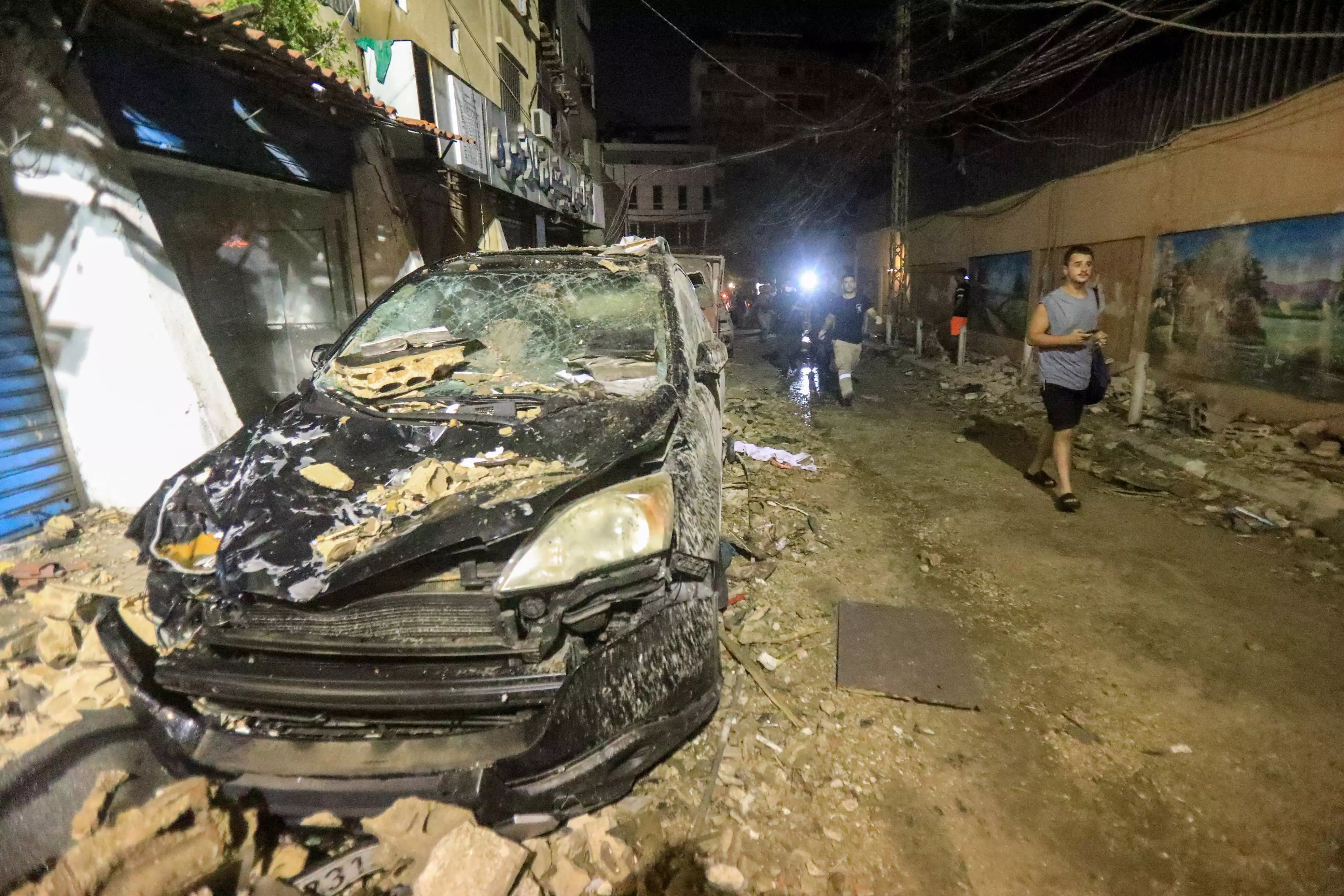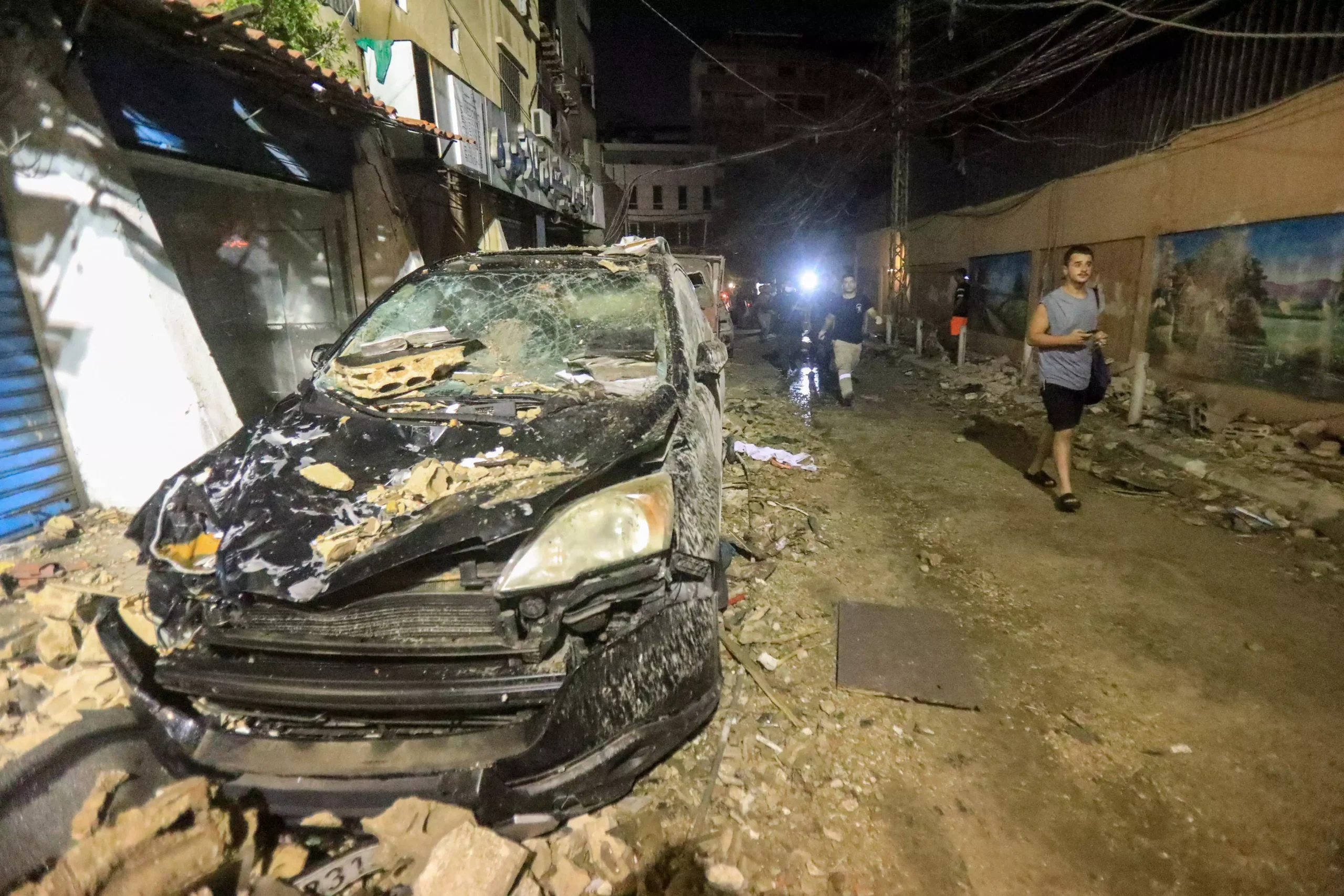
Israel’s army said its jets had “eliminated” Fuad Shukr, a senior Hezbollah commander responsible for carrying out an attack on the annexed Golan Heights where the children were killed on Saturday.
A source close to Hezbollah said Shukr was the target but that he “survived the Israeli strike”. AFP was not immediately able to confirm that report.
Shukr is “in charge of commanding the military operations in southern Lebanon”, the source added, saying he had succeeded top Hezbollah commander Imad Mughniyeh, who was killed in a 2008 Damascus car bombing the group blamed on Israel.
Shukr has a $5 million price on his head from the US Treasury, which describes him as a “senior adviser” to Hezbollah leader Hassan Nasrallah, who played “a central role” in the deadly 1983 bombing of the US Marine Corps barracks in Beirut.
The Hezbollah source said two people were killed in Tuesday’s strike. Lebanon’s official National News Agency (NNA) said a “number” of people were injured.
Lebanon’s health ministry said Wednesday that three people, including two children, had been killed in the strike, which also left 74 injured, updating an earlier toll.
An AFP photographer at the scene saw an eight-storey building that had partially collapsed in the strike, while ambulances struggled through crowds and rescue workers combed through the rubble of the building for survivors.
Minutes after the explosions rocked Beirut, Israeli Defence Minister Yoav Gallant posted on social media site X that “Hezbollah crossed the red line”.
Lebanese Prime Minister Najib Mikati condemned what he called “blatant Israeli aggression”.
Hezbollah backer Iran denounced the “vicious” strike, while Russia’s foreign ministry called the Israeli attack a “gross violation of international law”.
US Vice President Kamala Harris, the presumptive Democratic election nominee, said Tuesday that Israel had a “right to defend itself against a terrorist organisation, which is exactly what Hezbollah is”.
The UN’s special coordinator for Lebanon, Jeanine Hennis-Plasschaert, said she was “deeply concerned” by Tuesday’s strike, adding that “there is no such thing as a military solution” to the ongoing conflict.
Israeli Prime Minister Benjamin Netanyahu had on Monday threatened a “severe response” to the attack that Israel and the United States have blamed on Hezbollah, though the group denies responsibility.
Israeli military spokesman Rear Admiral Daniel Hagari said late Tuesday: “While we prefer to resolve hostilities without a wider war, the IDF is fully prepared for any scenario,” referring to the Israel Defence Forces.
‘Constant anxiety’
Following Saturday’s strike on the Druze Arab town of Majdal Shams, the international community had raced to head off any escalation that might tip the two into their first all-out conflict since 2006.
Analysts told AFP that they expected Israel to temper its actions, with its leaders wary of having to fight a second war while its troops are still engaged in the Gaza Strip.
At least 531 people, most of them fighters, have been killed on the Lebanese side of the near-daily cross-border exchanges, according to an AFP tally.
At least 22 soldiers and 25 civilians have been killed on the Israeli side, including in the Golan Heights, according to army figures.
On Tuesday, Israeli medics said a 30-year-old civilian was killed in the northern kibbutz of HaGoshrim, while the army said it killed a Hezbollah fighter during overnight strikes.
Druze residents of Majdal Shams — the vast majority of whom have rejected Israeli citizenship and identify as Syrians — have opposed threats of retaliation for the deadly strike.
The community is “against any Israeli response”, paramedic Nabih Abu Saleh said. “Who will we strike? Our people in Syria and Lebanon?”
Scores of residents demonstrated against Netanyahu’s visit to the town on Monday.
Several international airlines suspended flights to Beirut ahead of Israel’s retaliation.
But the chairman of Lebanon’s Middle East Airlines, Mohammed al-Hout, said Beirut airport was “not exposed to any threat, it is supposed to be a neutral place”.
Lebanese mother of two Cosette Beshara said she was living “in a state of constant anxiety”.
“I’m always thinking about how I will escape with my children if war breaks out,” said the 40-year-old, adding that “life goes on in Lebanon… but always with a looming state of anxiety.”
Gaza ‘decomposed bodies’
Hezbollah has said its attacks on northern Israel are in solidarity with Hamas and the people of Gaza, who have been under siege by Israel since October 7.
The Hamas attack on southern Israel that started the war resulted in the deaths of 1,197 people, mostly civilians, according to an AFP tally based on official Israeli figures.
Militants also seized 251 hostages, 111 of whom are still held captive in Gaza, including 39 the military says are dead.
Israel’s retaliatory military campaign in Gaza has killed at least 39,400 people, according to the health ministry in the Hamas-run territory, which does not provide details on civilian and militant deaths.
Fighting has raged on unabated in the Gaza Strip, with the territory’s civil defence agency saying on Tuesday that around 300 people had been killed in the southern city of Khan Yunis during an Israeli operation there that began on July 22.
“Since the beginning of the Israeli ground invasion of the eastern part of Khan Yunis province, the civil defence and medical teams have recovered approximately 300 bodies of martyrs, many of them decomposed,” agency spokesman Mahmud Bassal told AFP.
The military, meanwhile, said it had completed its operation in the Khan Yunis area, which had seen heavy fighting earlier this year, and had killed “over 150 terrorists”.
